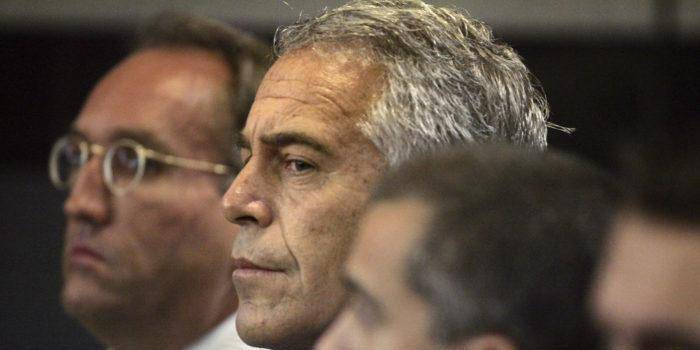(José Niño, Headline USA) Newly released documents reveal Jeffrey Epstein played a critical role facilitating Israeli intelligence operations in Côte d’Ivoire, working alongside former Defense Minister Ehud Barak to broker mass surveillance deals with the embattled West African nation, according to a report by Drop Site News.
The revelations come from leaked emails released by the Handala hacking group and documents published by the U.S. House Oversight Committee last month, including Epstein’s personal emails and appointment calendars from 2012 and 2013.
After a disputed 2010 presidential election triggered violence in Côte d’Ivoire, President Alassane Ouattara sought to consolidate power following a French and United Nations military intervention. Just days after Ouattara announced foiling a coup attempt in June 2012, he traveled to Jerusalem to meet Barak and Prime Minister Benjamin Netanyahu about counterterrorism cooperation.
That same day, according to House Oversight documents, Epstein met with Ouattara’s son David Dramane Ouattara in New York City. Three months later, Epstein hosted Ouattara’s niece Nina Keita before going directly to meet Barak at the Regency Hotel. Keita had traveled on Epstein’s plane as a young fashion model in Jean Luc Brunel’s agency.
In October 2012, Epstein traveled to Africa, instructing his assistant to arrange stops in Côte d’Ivoire, Angola, and Senegal. Two weeks after this trip, Ivory Coast’s Interior Minister was in Tel Aviv meeting with Barak about a bilateral security accord.
According to Drop Site News, Epstein wrote to Barak about the opportunities civil unrest created, saying “with civil unrest exploding and the desperation of those in power, isn’t this perfect for you.” Barak replied, “You’re right in a way. But not simple to transform it into a cash flow.”
📺 Breaking Points on Drop Site’s ‘Epstein Files’ — @krystalball and @esaagar unpack our new reports on Jeffrey Epstein’s ties to Israeli intelligence, including a top spy who lived for weeks in his Manhattan mansion and Epstein’s surveillance deals in Côte d’Ivoire. pic.twitter.com/RPfPoiFhp2
— Drop Site (@DropSiteNews) November 11, 2025
After leaving his defense minister position in March 2013, Barak continued negotiating covertly with Côte d’Ivoire. One day after his departure, he received materials from French-Israeli security contractor MF Group detailing plans for a mobile and internet surveillance center and video monitoring system in Abidjan.
Communications between Barak and his brother-in-law Doron Cohen used cryptic language, referring to players by initials and arranging calls when Cohen would be “in the car alone” to avoid being overheard.
Progress stalled after a UN report discovered “dozens of crates” of Israeli ammunition at the presidential palace, leading to extended arms embargo enforcement. Barak then contacted key Israeli security figures with Côte d’Ivoire connections, including Amos Malka, former head of Israeli intelligence, and Michael Federmann, chairman of military technology giant Elbit Systems.
In August 2013, Barak traveled to Abidjan under the pretext of building hospitals, meeting with Ouattara and his security chiefs. Upon returning to Israel, he received a 13-page proposal from Aharon Ze’evi-Farkash, former head of Israeli intelligence, mapping complete architecture for eavesdropping on phone calls, satellites, and internet communications.
During the UN General Assembly session in New York that September, Epstein coordinated meetings for Barak with prominent figures and arranged another meeting with Ouattara’s chief of staff. Epstein sent Barak the official’s contact information, writing “chief of staff of outara, he arrives tomorw, try to coordianate,” Drop Site News reported.
After UN peacekeepers conducted joint operations with Ivorian forces in November 2013 and sanctions were lifted in April 2014, Foreign Minister Avigdor Liberman arrived in Côte d’Ivoire on June 13, 2014 to sign the defense and internal security agreement, accompanied by over 50 businessmen.
Since the agreement, Ouattara has banned public demonstrations, arrested peaceful protesters, and won a fourth term despite constitutional limits while opposition candidates were barred.
Exiled activist Boga Sako Gervais stated, “Under Ouattara, since 2011, freedoms of opinion, thought, and expression have been criminalized. It has become forbidden to criticize the head of state.”
José Niño is the deputy editor of Headline USA. Follow him at x.com/JoseAlNino

